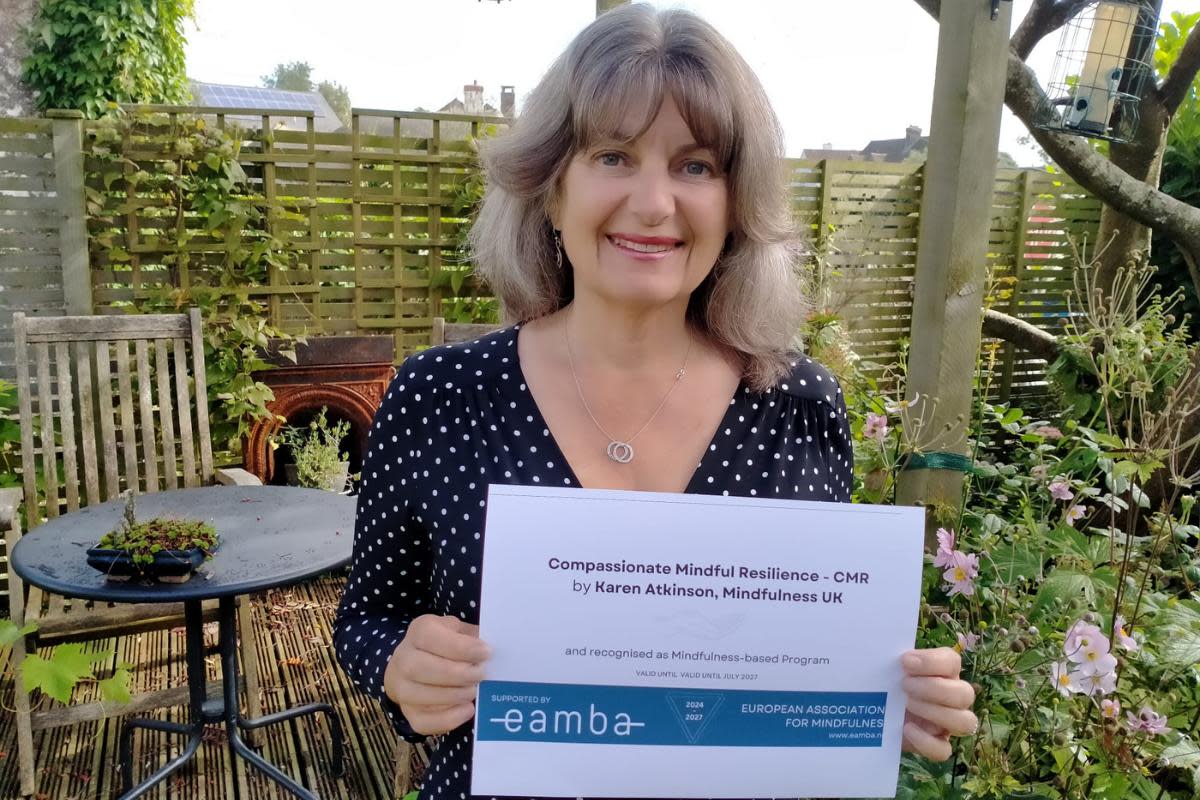Have you ever felt like the world around you is crushing in, and no matter how hard you fight, you can’t seem to find a moment of peace? Many people face such challenges, especially those diagnosed with life-altering illnesses. The emotional and mental toll can be overwhelming. A cancer survivor, understanding the depths of such pain, has stepped forward to make a difference.
Cancer Survivor Launches Mindfulness Course to Help People Facing Challenging Times
This article unravels the journey of a cancer survivor who has bravely turned their personal trauma into a beacon of hope for others. By introducing a mindfulness course specifically designed to help those grappling with difficult times, this individual provides an invaluable resource for mental well-being.
The Genesis of the Mindfulness Course
The creator of this course knows first-hand the unexpected and harrowing challenges that come with a cancer diagnosis. From the moment they heard the words “you have cancer,” life became a whirlwind of medical appointments, treatments, and uncertainties. During this journey, they found solace in mindfulness practices which led to a profound transformation.
Determined to share these life-saving techniques, they put together a structured mindfulness course. This program is not just for cancer patients but for anyone dealing with significant challenges in life. It aims to guide individuals through their toughest times with the power of mindfulness.
What is Mindfulness?
Mindfulness is the practice of being fully present in the moment. It involves paying deliberate attention to your thoughts, feelings, and environment without judgment. This ancient practice has roots in various religious and secular traditions, but it has gained widespread recognition in contemporary psychology and wellness communities for its mental health benefits.
Key Components of Mindfulness
| Component | Description |
|---|---|
| Awareness | Conscious acknowledgment of your current thoughts and emotions. |
| Acceptance | Embracing your experiences without judgment. |
| Focus | Redirecting your attention to the present moment. |
| Breathing | Using controlled breathing to anchor your mind in the now. |
| Body Scan | A mental scan of your body to notice and release physical tension. |
The Structure of the Mindfulness Course
This mindfulness course is meticulously designed to cater to individuals facing various forms of adversity. The structure of the course includes several modules that are each tailored to address specific aspects of mental well-being and coping strategies.
Module 1: Introduction to Mindfulness
This introductory module sets the stage by explaining what mindfulness is, its proven benefits, and how it can significantly improve your mental health. You will also learn about the personal journey of the course creator, providing you with relatable, authentic context.
Module 2: Techniques for Immediate Relief
Challenges often trigger immediate stress responses. This module offers quick and effective techniques that can be employed in moments of crisis. These practices are designed to help lower your stress levels and bring you back to a state of calm.
Module 3: Long-term Mindfulness Practices
For sustained mental health improvements, long-term practices are essential. This part of the course teaches you comprehensive mindfulness exercises that can be integrated into your daily routine. Consistency in these practices can lead to profound mental and emotional stability.
| Technique | Purpose |
|---|---|
| Meditation | Boosts focus and emotional regulation. |
| Mindful Walking | Combines physical activity with mental calmness. |
| Journaling | Reflects on daily experiences to heighten self-awareness. |
| Gratitude Lists | Encourages daily reflection on positive aspects of life, combating negativity. |
Module 4: Building Community and Support
An often-overlooked aspect of coping with challenging times is the importance of community and support. This module focuses on creating a support network, teaching you how to connect with others who may be going through similar experiences.
Module 5: Applying Mindfulness in Daily Life
The final module ensures that you can seamlessly integrate these mindfulness techniques into your everyday life. Practical tips and real-life examples will be provided to ensure you can maintain these practices long after completing the course.
The Benefits of Mindfulness for Mental Well-being
Bringing mindfulness into your life can offer a range of mental health benefits, which are particularly vital during demanding times. Below are some articulated benefits:
Reducing Stress and Anxiety
Mindfulness helps you to manage your stress and anxiety more effectively. Techniques like controlled breathing and meditation can lower cortisol levels, a stress hormone, which calms the mind.
Enhancing Emotional Stability
Through its focus on the present moment, mindfulness allows you to gain better control over your emotions. This can help you avoid the emotional roller coaster that often accompanies difficult phases of life.
| Emotional Benefit | Description |
|---|---|
| Improved Mood | Helps lift your spirits and reduces incidences of depressive episodes. |
| Resilience | Builds mental resilience, making it easier to handle setbacks. |
| Emotional Regulation | Assists in managing intense emotions without being overwhelmed by them. |
Improving Mental Clarity and Focus
Mindfulness practices can enhance your cognitive functions, including focus, memory, and decision-making. This is particularly beneficial when facing life-altering challenges, as it allows for better management of the circumstances.
Real-Life Testimonials
To understand the impact of this mindfulness course, it’s invaluable to hear from those who have experienced it. Here are some real-life testimonials:
| Name | Testimonial |
|---|---|
| John D. | “This course has been a lifesaver. The practices I’ve learned have transformed my mental health during my battle with illness.” |
| Samantha K. | “Mindfulness has helped me find peace in moments of chaos. The community support has been incredible.” |
| Alex R. | “I was skeptical at first, but the techniques are practical and have brought significant improvements to my daily life.” |
Practical Tips for Maintaining Mindfulness
Sticking with mindfulness practices can sometimes be challenging. Here are some practical tips to ensure you make the most of the techniques you’ve learned:
Daily Practice
Incorporate mindfulness into your daily life. Even just a few minutes each day can make a considerable difference.
Set Reminders
Use reminders or alarms to prompt you to take mindfulness breaks throughout your day. This can help make mindfulness a regular part of your routine.
Find a Support Group
Joining a support group can provide you with additional encouragement and accountability. Sharing your experiences and hearing those of others can be incredibly motivating.
| Tip | Description |
|---|---|
| Daily Practice | Set aside specific times each day for mindfulness exercises. |
| Reminders | Use your phone or alarms to remind you to take mindfulness breaks. |
| Support Group | Engage with others who are also practicing mindfulness to share tips and experiences. |
The Science Behind Mindfulness
Scientific research supports the effectiveness of mindfulness practices in improving mental health. Studies have shown that regular mindfulness can lead to structural changes in the brain that bolster cognitive function and emotional regulation.
Neuroplasticity
One fascinating aspect is neuroplasticity, which is the brain’s ability to reorganize itself by forming new neural connections. Mindfulness practices have been found to enhance this plasticity, thereby improving emotional and cognitive functioning.
| Neuroplasticity Benefit | Explanation |
|---|---|
| Emotional Regulation | Better control over emotions through enhanced brain connections. |
| Cognitive Function | Improved memory, focus, and decision-making capabilities. |
| Stress Response | Reduced stress levels through better management of stress-related brain activity. |
Conclusion: A Beacon of Hope
Turning personal trauma into an opportunity to help others is a deeply empathetic and noble endeavor. This mindfulness course provides a much-needed haven for those navigating the tumultuous waters of life’s challenges. By emphasizing the importance of mental well-being and offering practical coping mechanisms, this initiative aims to provide lasting relief and support.
Encourage yourself to explore the practices taught in this course. Whether you’re personally facing challenging times or looking to support someone else, these techniques can offer invaluable relief and resilience, helping you find strength and peace in the face of adversity.







